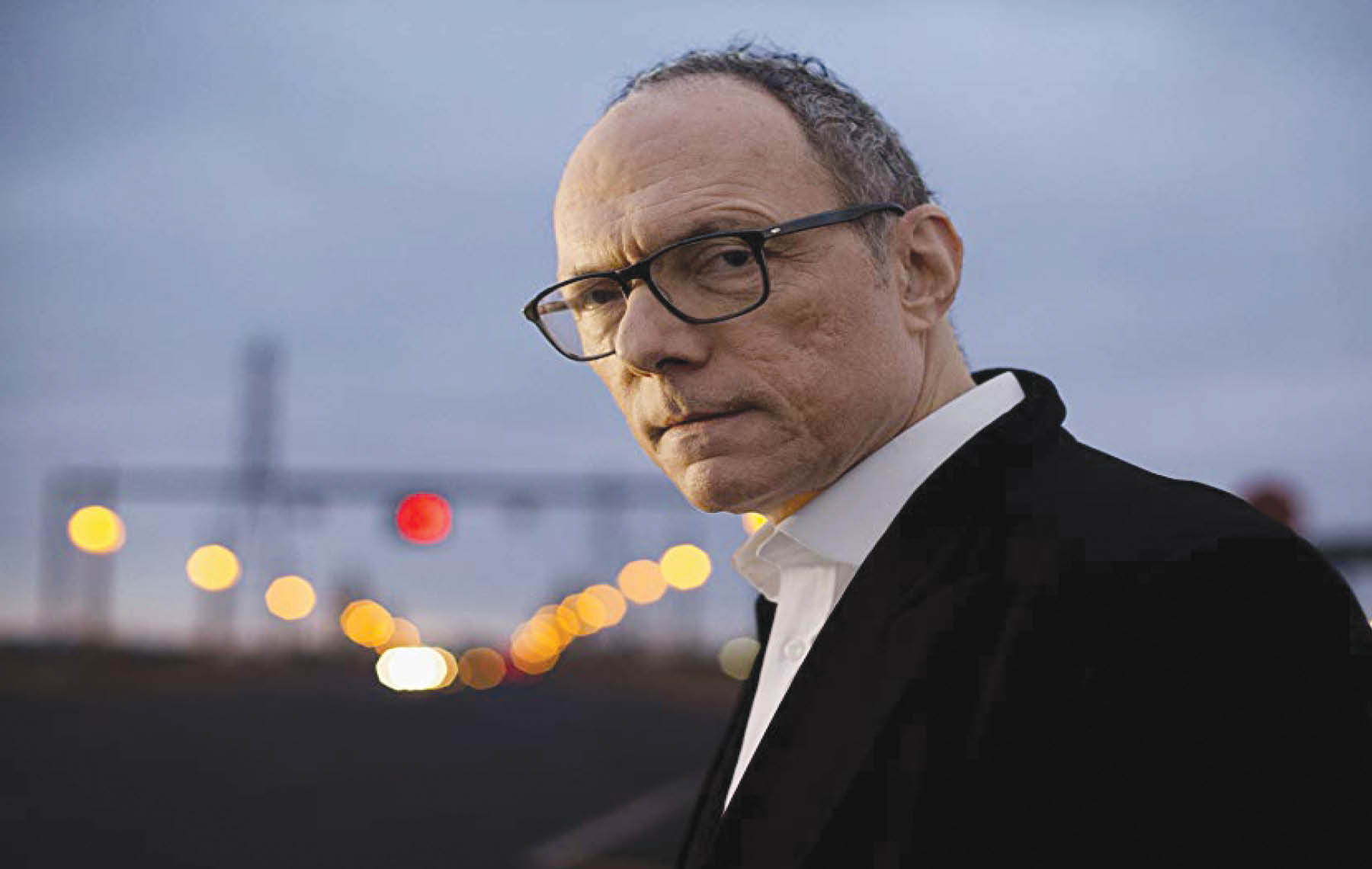
Hollywood filmmaker and novelist Michael Tolkin, 68, has won a slew of awards for his work. His 1992 adaptation of his novel “The Player” won the Writers Guild Award, the BAFTA Award for Best Adapted Screenplay, the PEN Center USA West Literary Award, and the Edgar Allan Poe Award for Best Crime Screenplay and was nominated for an Oscar.
Not one to rest on his laurels, more recently he’s been a consulting producer and writer for the Showtime series “Ray Donovan,” and co-wrote the 2018 Showtime limited series, “Escape at Dannemora.”
Born Moredchai Leib Tolchinsky, Tolkin’s late father, Mel Tolkin, was one of the great TV comedy writers. His mother, Edith, was a film executive and a lawyer. The apple didn’t fall far from the tree.
Of his prolific and diverse body of work, Tolkin said, “My subjects seem to choose me. ‘The Player’ started as a joke: A studio exec is killing writers who have pitched to him but nobody suspects there’s a serial killer because everyone in the city has a screenplay in the drawer.”
Howard Rosenman: Was being born into showbiz aristocracy an advantage or a hindrance?
Michael Tolkin: My father worked steadily from 1948 until 1980, and went from sketch comedy to sitcom to writing one-liners for Bob Hope and then back to situation comedy on “All in The Family.” So I had the advantage of seeing the need to keep up with the times.
HR: How does your Jewish background and values impact your work?
MT: There’s the art of Jews, a cultural expression, and the art of Judaism, which is to say that Philip Roth may write brilliantly about Jews, but he knows nothing of the religion. My third novel, “Under Radar,” asks and answers a question that I thought of as essentially Jewish: After you’ve made teshuvah and done your best to repair the damage you’ve done to the world, what remains still broken?
HR: What was your Jewish upbringing like?
MT: My mother’s Romanian parents grew up in homes where the piety was drained of joy, and once married, never practiced. My father survived pogroms in the Ukraine, hiding in the cellar for three days. His parents were nominally Orthodox but passed nothing on to him. My mother never went to a seder until after I was born. When I was eight — we were living in Westchester, New York — I got beaten up by a neighborhood friend who must have been recently dosed with Jew hatred by his father, and after that my mother sent me to a synagogue for a little bit of Hebrew school. I liked the atmosphere.
We moved to LA, and we joined Temple Emanuel. After my Bar Mitzvah I was confirmed there, in a terrific program, so I had a good basic affectionate connection. In the early ’90s I was one of many wandering Jews who found his way back to Shabbat in Temple, and over the years had the privilege of studying with many great rabbis and teachers, across the spectrum. Of particular importance in those years were Rabbi Mordechai Finley of Ohr Hatorah, and Rabbi Daniel Landes at B’nai David Judea. I took a weekly study class with him there. I’m not Orthodox but I came to love the traditional liturgy.
HR: Your wife, Wendy Mogel, is also a well-known writer. How did you meet?
MT: Wendy and I met at Bard College, and then I followed her to Middlebury College in Vermont, when she transferred. Her first book, “The Blessings of a Skinned Knee,” translated Jewish parenting wisdom into an approach that has been accepted from Beijing to every major city in the country.
HR: What are your political views on the current state of America?
MT: Someday soon, in 100 years, the fact of irreversible global warming will be undeniable. The latest projection is that the insects are disappearing and will be gone in a hundred years. With that, the food chain is destroyed; crop propagation is destroyed. We’re told that at Sinai, where we all stood together, the mountain of history was held over our heads and we were told to accept it or perish. Right now the mountain is being held over our heads again, in the ice melt that flows from the glaciers into the oceans. Either we accept this truth and work to globally react to the danger, or condemn our descendants to the hell we already feel in global migration pressure.
This is my un-coy way to say that the energy spent on fighting the political, theological, territorial and ethnic battles of our time is going to look like insane vanity. To those who say that the scientific consensus is a fraud, I can only respond: “Where is the evil in prudent caution when the consensus of the experts is against you?” And in what way is that caution not Jewish? Despair is antithetical to Judaism, so I choose hope but not optimism.
HR: What does the future hold for you?
MT: “Escape at Dannemora” was a great success and, as Gary Cooper said about longevity in Hollywood, “One out of three keeps the bicycle wheels turning.” My father’s last words, at age 93, were perfect for a writer: “I have no more ideas.” I still have them.
Howard Rosenman has produced more than 43 movies, including
“Call Me by Your Name.” He founded Project Angel Food.




















 More news and opinions than at a Shabbat dinner, right in your inbox.
More news and opinions than at a Shabbat dinner, right in your inbox.